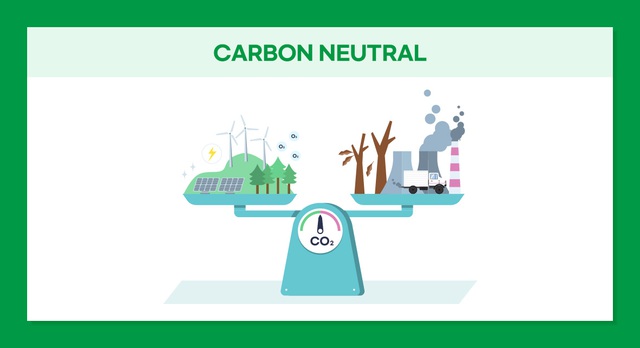Viet Nam may need US$ 600 billion to achieve carbon neutrality
VGP - Viet Nam may need up to US$600 billion to achieve the target of net zero carbon emissions by 2050, said Kazuo Kusakabe, Chief Representative of Toshiba Asia Pacific Pte Ltd in Ha Noi on February 15.

Illustration photo
The Japanese executive made the forecast at a forum on measures to boost the post-COVID-19 cooperation between Viet Nam and Japan towards green growth hosted by the Central Institute for Economic Management (CIEM) under the Ministry of Planning and Investment (MPI).
Kusakabe said climate change is a challenge for the world, including Viet Nam.
He urged the Vietnamese Government to accelerate the approval of big projects and those supporting green growth.
CIEM Director Tran Thi Hong Minh said, to address challenges caused by climate change toward green growth after the COVID-19 pandemic, it is necessary to strengthen international cooperation.
As one of the most vulnerable countries by climate change, Viet Nam has been proactive in proposing many solutions to minimize the impacts of climate change, including its commitment to net-zero emissions by 2050 at the 26th United Nations Climate Change Conference (COP26) in the UK, she said.
To solve challenges related to climate change, Viet Nam has carried out cooperation programs with Japan, especially in terms of green growth, Minh said.
These activities have produced many important results, especially in the fields of investment, import-export, sustainable infrastructure development, and human resource development.
According to Dr. Vo Tri Thanh, Director of the Institute for Brand and Competitiveness Strategy, Viet Nam needs to boost international cooperation and roll out measures to mobilize domestic and international private capital to complete its target of net-zero emissions by 2050.
Target of net zero carbon emission by 205
Earlier, at the 26th UN Climate Change Conference of the Parties (COP26), Prime Minister Pham Minh Chinh pledged that Viet Nam would strive to achieve net-zero emissions by 2050.
The action plan on green energy transition in the transport industry was issued on July 22 as part of the country’s wider strategy to actualize its climate change commitments.
The National Climate Change Strategy until 2050 was approved on July 26, 2022 targeting to make active and responsible contributions to the international community in protecting the Earth's climate, take advantage of opportunities from climate change response to transform growth models, as well as improve the competitiveness of the economy.
By 2030, Viet Nam will develop and implement an action plan to reduce methane emissions by 30 percent compared to 2020, as well as manage and eliminate substances that cause greenhouse gas effects.
According to the World Bank, to ensure sufficient funding for responding to climate change, mobilizing domestic finance is possible but external support will be needed.
Overall, Viet Nam’s total incremental financing needs for the resilient and decarbonizing pathways could reach US$368 billion over 2022-2040, or approximately 6.8 percent of GDP per year. The resilient pathway alone will account for 4.7 percent of this amount as substantial financing will be required to protect the country’s assets and infrastructure as well as vulnerable people.
This US$368 billion in financing needs will include US$184 billion from private investments or about 3.4 percent of GDP annually, US$130 billion or about 2.4 per cent of GDP annually from the state budget; and US$54 billion or about one per cent of GDP per year from external sources./.

